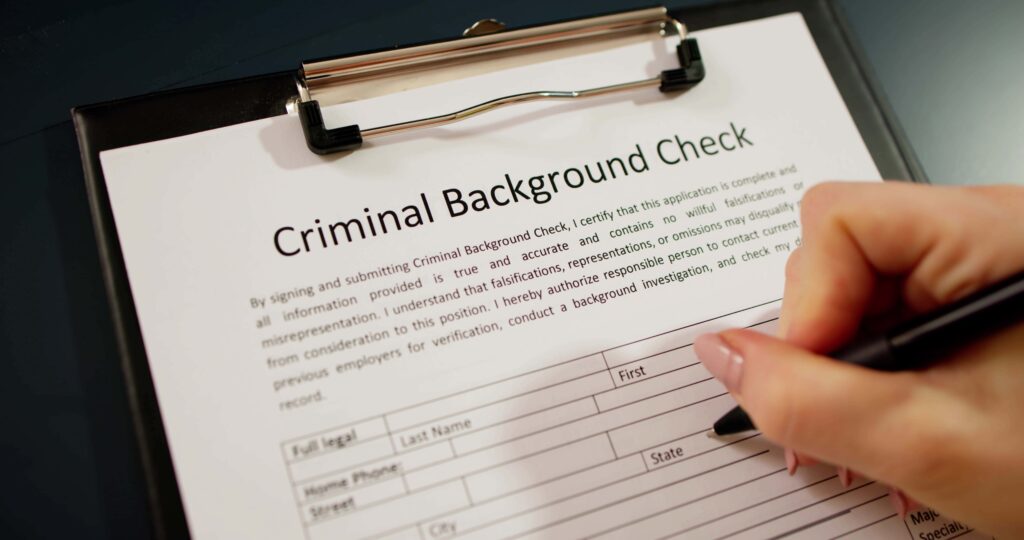When faced with a drug crime charge, many people worry about how it will affect their future. Will they be able to find a good job? How will this appear on their record? The impact of drug crimes on future employment opportunities is serious and long-lasting, but there are ways to protect your future.
How Drug Crimes Appear on Background Checks
Employers often request background checks as part of the hiring process. These checks reveal a lot about your history, including any criminal records. If you’ve been charged or convicted of a drug-related offense, it can show up during this process.
- Drug charges can stay on your public record for years, depending on the type of crime and state laws.
- Sometimes, even arrests that didn’t lead to a conviction may still appear.
- Serious drug charges, such as felony-level offenses, tend to have a greater negative effect than misdemeanor charges.
For people seeking employment, this can create challenges:
- Certain employers may immediately disqualify candidates with drug-related records.
- Fields such as healthcare, education, or law enforcement often have strict policies against hiring those with drug charges.
- A conviction may disqualify you from positions requiring professional licenses or security clearances.
Familiarizing yourself with these challenges is key to figuring out how to move forward.
Ways Employers Use Background Information

Employers often use the information from background checks to assess:
- The level of trust they can place in a candidate.
- Whether hiring you could pose risks to the workplace or clients.
- Compliance with company policies or industry regulations.
Although this process can feel invasive, most businesses argue that it helps ensure the safety and integrity of their operations.
Jobs That May Be Off-Limits After a Conviction
Not all industries treat criminal records the same way. Some are more forgiving, while others have little room for negotiation. You may find it difficult to enter specific fields if you have a drug crime on your record.
Industries with strict regulations
Some jobs where drug convictions can create hurdles include:
- Healthcare
Many licensing boards prohibit individuals with certain criminal records from obtaining or renewing licenses. - Public Sector Jobs
Government roles often conduct detailed background checks and may deny candidates with drug-related convictions. - Education
Positions in schools and colleges often require clean criminal records.
Professions that may offer flexibility
Not all hope is lost. Certain industries are more open to hiring individuals with past convictions:
- Technology companies often weigh skills and experience over background checks, especially for freelance roles.
- Small businesses may have fewer formal hiring processes, offering second chances more often.
- Construction and trade skills often have pathways for those working to rebuild their futures.
Although there are challenges, your criminal record doesn’t have to define every career option.
How Old Convictions Can Still Affect You
You may wonder if the age of your conviction matters. While older offenses may not carry the same weight as recent ones, they can still appear in background checks.
Employers might assume that even an old drug conviction reflects who you are now. But there’s good news. The impact of an old conviction can sometimes be lessened in these ways:
- Expungement or record sealing
This legal process can remove certain charges from public view, giving you a clean slate in the eyes of most employers. - Time passed since conviction
Many companies focus on offenses from the past 5-7 years. If your record is much older, hiring managers may view it as less relevant. - Proven rehabilitation
Showing evidence of personal growth or professional development can counteract concerns about your suitability for a role.
Small steps build trust. Even with a record, rehabilitation efforts and legal work can help you regain opportunities.
Questions an Employer Might Ask You

While many hiring managers will look at written information alone, some might ask direct questions about your past.
Be prepared for inquiries such as:
- “Have you taken steps to address past decisions that led to the charge?”
- “What lessons have you learned from this experience?”
- “Why do you believe you’re still a good fit for this company despite your record?”
Answering openly and confidently can show that you’re ready to contribute and move forward.
What You Can Do to Minimize Future Issues
Having a drug conviction doesn’t mean giving up on your career. Steps you take now can help ensure better results down the road.
Steps to improve your job prospects
Some key actions to consider include:
- Work With an Attorney
An attorney can help you understand options like expungement or legal defenses for pending charges. - Build Strong References
Positive recommendations from former colleagues or managers can help offset concerns about your record. - Further Education or Certifications
Gaining new qualifications shows employers you’re committed to improving yourself and contributing value to their team.
Be Honest but Strategic
Telling the truth about your background is important, but how you frame the information matters. Be upfront without oversharing and focus on how you’ve grown.
For example, you can explain your record briefly, then pivot to the positive steps you’ve taken since.
- Mention any volunteer work, educational achievements, or leadership roles you’ve held.
- Highlight personal qualities such as responsibility, dedication, or perseverance.
Employers are often willing to consider candidates who take accountability and show they’ve worked hard to turn their life around.
Strategies for Addressing Drug Crimes on Employment Records

If a drug crime is already part of your criminal record, there are ways to deal with it effectively. Addressing it head-on can significantly affect how potential employers view you. Transparency and preparation are key.
Handling past drug charges on job applications
- Know what shows on background checks
Start by understanding what employers see. Request a copy of your criminal record to verify its accuracy. Sometimes errors can appear, so addressing them is vital. - Be honest when required
While it may feel uncomfortable, lying on an application can lead to bigger problems. If the application asks about convictions, provide a truthful answer. Employers may value honesty over a clean record. - Highlight rehabilitation efforts
Demonstrating effort to change can shift the focus away from the conviction. Mentioning completed treatment programs or community service shows responsibility. Employers may appreciate actions that reflect positive growth.
Reframing The Conversation During Interviews
Entering an interview with confidence can help manage employer concerns. Preparation is the best way to set the tone and maintain control over this sensitive topic.
- Acknowledge the charge
Briefly explain the situation without over-sharing. Keep words neutral and avoid excuses. - Focus on achievements
Guide the discussion toward your successes, including skills and goals for growth. - Present a positive outlook
Show what you've learned from the situation. Discussing the steps you've taken toward better decisions can reassure employers.
Seeking Record Expungement or Sealing
For individuals with eligible charges, record expungement or sealing is an option to explore. These processes differ depending on the jurisdiction, but both can limit information revealed during background checks.
What is Expungement?
Expungement removes a charge or conviction from public records. Once expunged, most jobs won’t see the offense. This can make it easier to secure housing, employment, and professional licenses.
What is Record Sealing?
Record sealing restricts public access but doesn’t erase the record entirely. Government agencies may still be able to view sealed records, but private employers cannot.
Benefits of Both
- Significant reduction in hiring discrimination
- Improved professional opportunities
- Peace of mind knowing the offense isn’t accessible to the public
The process can be complex, so hiring legal counsel can help. Knowing whether you qualify and how to proceed is the first step toward clearing your record.
How Employers Conduct Screening
Employers use various screening tools to evaluate applicants. Knowing what they search for and what is allowed under the law can help you prepare.
- Criminal Record Checks
This reveals any convictions, pending cases, or unsealed charges. - Reference Checks
Employers may contact previous supervisors to assess your work history and behavior. - Drug Testing
Some jobs require applicants to pass a drug screen before employment.
Legal Protections You Have
- Ban-the-Box Laws
These laws prevent employers from asking about convictions on initial applications. Many states and cities support these measures. - Fair Credit Reporting Act (FCRA)
This law ensures inaccuracies on background checks are disputable and requires employers to inform applicants before taking adverse action.
Understanding your rights under these policies can make the application process less intimidating.
Focus on Industries That Offer Second Chances
Some industries are more open to hiring individuals with criminal records. Exploring them can provide opportunities while you work on rebuilding your reputation.
Industries Offering More Flexibility
- Construction and Skilled Trades
Many roles in construction prioritize ability and experience over background reports. - Entrepreneurship
Starting your own business avoids traditional hiring concerns entirely. From selling products to opening a service-based company, entrepreneurship offers fewer restrictions. - Technology Fields
Tech startups and innovative companies are often more willing to overlook mistakes in favor of skill and motivation.
Exploring these options can result in employment faster and offer long-term career growth.
How Drug Convictions Affect Professional Licensing

A drug conviction can make it much harder to enter or stay in professions that require a license. Licensing boards often consider past convictions when assessing an applicant's eligibility.
This applies to many fields, especially ones like healthcare, law, and education. Each industry has its own rules, but for many people, the process is challenging.
Licensing challenges in healthcare, law, and education
Healthcare
Nurses, doctors, and pharmacists face strict scrutiny from medical boards. Drug-related convictions can lead to license denials, suspensions, or revocations. Medical boards are particularly focused on drug crimes that suggest substance abuse.
Even minor offenses may prompt mandatory evaluations or rehabilitation to prove fitness to practice.
Law
Attorneys are also vulnerable. Bar associations take morality and integrity seriously, and drug-related charges may raise red flags. For new applicants, these issues might prevent admission to the bar. Practicing attorneys with convictions could face disciplinary actions, including disbarment in severe cases.
Education
Teachers and school administrators often work under laws prioritizing student safety. A drug conviction can prevent hiring or lead to the suspension of an existing license.
Public schools follow stringent guidelines, making reentry into teaching after a conviction especially tough.
Building a Case for Reinstatement
If you seek to regain a license after suspension, you’ll likely need to attend a formal hearing. Presenting a solid case demands preparation and a clear plan.
- Write a Personal Statement
Detail what you’ve learned from your experience and the steps you’ve taken to prevent future issues. Addressing your conviction with sincerity and accountability can influence decision-makers. - Show Documentation of Compliance
Provide proof of any completed treatment programs, fines paid, or community service. This demonstrates a willingness to correct past mistakes. - Present a Plan for Moving Forward
Explain how you’ll stay on track if reinstated. This might include ongoing therapy, regular check-ins, or professional development plans.
Why Rehabilitation Is Valued
Licensing boards frequently consider rehabilitation a significant factor. Boards understand that mistakes don’t always define a person, but they expect applicants or license holders to demonstrate actionable improvement.
Showing an active commitment to recovery and accountability could sway decisions in your favor.
Moving forward after licensing barriers
Even when reentering certain licensed fields becomes impossible, it’s still possible to build a bright future.
Some options include:
- Pursuing certifications or roles not tied to stricter licensing regulations
- Seeking positions within private industries with flexible hiring policies
- Developing transferable skills that apply across many professions
Recovering from a drug-related conviction while pursuing licensure is difficult but achievable. What matters most is demonstrating accountability, persistence, and change.
Learn How Support Can Help
Facing hiring challenges after a drug crime conviction is hard to tackle alone. Legal aid and tailored advice can clear a path forward.
At Rossen Law Firm, we understand the effect these charges have on future opportunities and can provide legal help to ensure the best outcomes. Call us at (754) 206-6200 for more information on how we can assist, starting today.